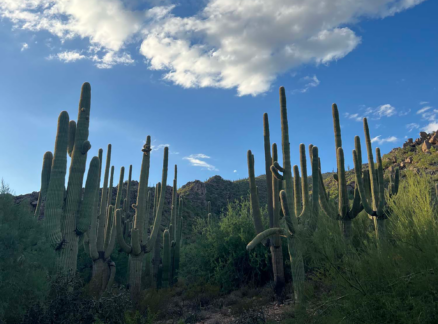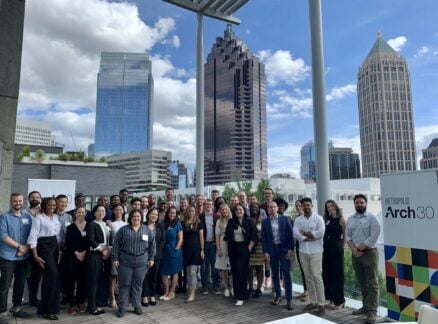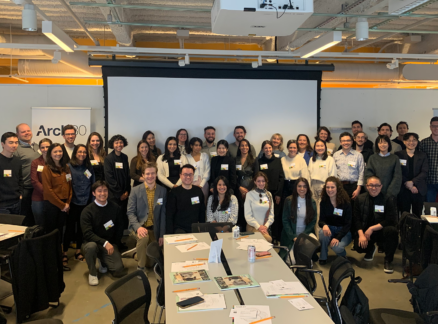October 26, 2004
(Re)Defining the Edge
In the 21st century, says Metropolis editor Susan S. Szenasy, we must create a complex world of new paradigms and patterns. For this Massive Change to occur, this embrace of an ethos of environmental sustainability and social equity, architects and designers must realize the interconnectedness of sun, sky, land, people, creatures, and resources of the […]
In the 21st century, says Metropolis editor Susan S. Szenasy, we must create a complex world of new paradigms and patterns. For this Massive Change to occur, this embrace of an ethos of environmental sustainability and social equity, architects and designers must realize the interconnectedness of sun, sky, land, people, creatures, and resources of the earth. They must realize that they have the power to alter the way things are, and the ethical responsibility to do no harm to their fellow beings or to the environment.
In her talk “(Re)Defining the Edge,” delivered September 8, 2004 to students of the Architecture and Urban Studies departments at the University of Oklahoma, Szenasy suggests that design and architecture schools can be at the forefront of this change. As she explains, “The studio system is a powerful and potentially dynamic tool—a fertile environment for innovative and intelligent problem-solving. All of you do research, explain your findings, incorporate them in the architecture you make, and test function and performance. Your studios are poised to make essential contributions to redefining the edge. Maybe your teachers are not fully equipped to deal with this new paradigm of interconnectedness, but they know how to navigate the building process, and they understand professional relationships and political bottlenecks.”
The heart of the matter is personal choice, decisions made by a designer or architect to consider more than his own welfare and his client’s needs. As Szenasy asks her audience: “[Will you] contribute to making a new pattern? Are you willing to take part in redefining the edge?”
Click here to read the whole transcript, rendered as a PDF.





